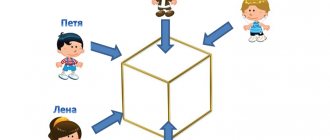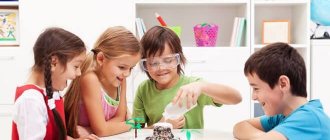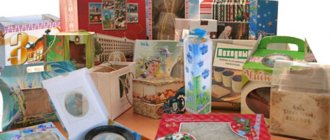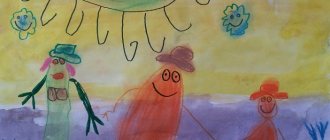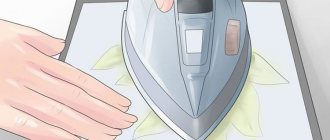Experimental work program (sample)
SI "SECONDARY SCHOOL-GYMNASIA No. 11" of Ust-Kamenogorsk
Experimental work program
English teachers
Kochergina Natalia Stepanovna
Topic of EER of educational institutions of Ust-Kamenogorsk: ”
Improving education in a modern school as a condition for the development of subjects of the educational process.”
Theme of the OER of the gymnasium school No. 11:
“Management of the formation of the subjective position of students and teachers in the context of improving the content of education.”
Topic of the EER of the English language department of school-gymnasium No. 11:
“Formation of positive motivation for the process of teaching English in the conditions of building subjective relations between participants in the educational process.”
Theme of the teacher's EER:
"Organization of students' research activities when teaching English, taking into account the subjectivity of all participants in the educational process."
Updating the problem:
Based on the requirements of modern development of society as a whole, the increased level of education, the strengthening of the role of education and the requirements for the quality of educational services in secondary schools at the present stage of development of society, a person who is the subject of his own activities, possessing developed creative potential and research abilities, becomes a competitive resource necessary for her further self-development.
The importance of students' research skills in today's fast-paced, dynamic society cannot be overestimated. At this stage, the public education system requires new approaches to the problem of early diagnosis and development of students’ creativity, independent thinking, the ability to find a problem, analyze, plan and develop ways to solve it.
Considering a student as a subject of his own activity, possessing some creative potential and realizing the need for self-development involves searching for new ways to solve this problem, namely: the task of nurturing and developing his creative potential, research and analytical abilities and skills, self-education skills and scientific and practical work.
This led to the choice of my new search topic for 2008-2013:.
“Organization of students’ research activities when teaching English, taking into account the subjectivity of all participants in the educational process.”
Object of study:
the process of developing the creative and research abilities of the student as a subject of the pedagogical process in English lessons and in extracurricular activities in the subject, such as: competitions, olympiads, scientific and practical conferences.
Subject of study:
student’s research activities in the subject during English lessons, and in extracurricular activities: in scientific and practical conferences of students, competitions “FLEX”, “SOROS”, “British Bulldog”, “Kangaroo”, subject Olympiads.
Research hypothesis:
If the motivational component of the development of the student as a subject of the educational process in English lessons and in extracurricular activities and the motivational component of research activities through the system of modern teaching technologies and research methods on the subject being studied have been formed, a system for testing creativity and the topics of scientific and practical activities of students has been developed, a program has been developed research work and preparation for it, the performance of participants in non-state educational institutions and research and development projects is monitored and the development of students as subjects of the educational process is monitored, they are provided with the necessary advisory pedagogical assistance, then optimal conditions for research activities will be created, because a person-oriented and systematic approach to this problem will be implemented, the necessary basis will be created for the self-development of the student as a subject of the educational process, and the process of student development during research activities will be effective.
Purpose of the study:
determining the most optimal ways and methods for the development of a student as a subject of the pedagogical process through the effective organization of his research activities in English lessons, in independent work and in extracurricular activities in the subject being studied: olympiads, competitions, scientific and practical conferences.
Objectives of the OER:
1. Identify the features of the development of the student as a subject of the pedagogical process, determine his creative abilities, level of creativity, abilities for research activities through a system of testing creativity, monitoring the level of knowledge and development of the student as a subject of the educational process.
2. Develop and implement a program for organizing student research activities in the classroom and in extracurricular activities in the subject. Draw up a plan for the research work of the “Success” section of the NOU of school students.
3. Ensure the participation of subjects of the pedagogical process in extracurricular research activities: olympiads, competitions, scientific and practical conferences. Provide the necessary advisory assistance in preparation for competitions, subject Olympiads and scientific and scientific training.
Stages of experimental work:
- 1st stage - analytical, preparatory - 2008-2009.
- 2nd stage - main, formative - 2009-2011.
- 3rd stage - final, generalizing - 2012-2013.
Methodological basis of the study:
general principles of the theory of knowledge, basic provisions of the theory of personality development and activity
(B.G. Ananyeva,
K.A.Abulkhanova-Slavskaya, A.N.Leontyev, K.K Platonov, A.A. Bodalev, S.L. Rubinshtein, L.I. Bozhovich, L.S.Vygodsky, P.Ya.Galperin);
concept of a person-centered approach
(N.A. Zavalko, I.Ya. Yakimanskaya,
S.B. Abibulaeva, L.K. Kerimov, K.K. Zhampeisova);
provisions of general systems theory
(V.G. Afanasyev, P.V. Bespalko, V.N. Sadovsky);
theory of integration and differentiation of education
(N.A. Zavalko, V.F. Morgun, I.E. Unt);
theoretical aspects of the development of teacher professionalism at the present stage
(A.K. Markova, V.A. Slastenin, L.N. Mitina);
theoretical aspects of the development of subjectivity
(E.N Volkova);
principles of training and education of gifted children
(V.S. Yurkevich, P. Torrance, N.G. Morozova, N.A. Menzinskaya.
Research sources:
regulatory documents in the field of education (Law of the Republic of Kazakhstan “On Education”, Concept for the Development of Secondary Education of the Republic of Kazakhstan until 2015, State Program for the Development of Education for 2005-2010), advanced innovative pedagogical experience of teachers-innovators of new types of schools.
Research methods:
study of psychological and pedagogical literature, normative documents, pedagogical observation, questioning, survey, testing, study and generalization of advanced pedagogical experience, modeling, pedagogical experiment.
Research base:
students of 8-11 humanitarian classes of school-gymnasium No. 11
Ust-Kamenogorsk
Conditions for the success of experimental work:
acceptance of the idea, strict adherence to the goals and objectives of the experimental work, consistent and steady implementation of the stages of the experiment;
determination of criteria and indicators of the effectiveness of the organization and evaluation of experimental work;
a thoughtful definition of design and transformation activities (program, plans, pedagogical actions, recommendations;
targeted pedagogical monitoring of the experiment based on self-diagnosis and psychological and pedagogical diagnostics;
cooperation with psychological services and centers for pedagogical work with gifted children (Daryn);
objective recording of intermediate and final results of the experiment;
no decrease in the quality of education and health level of the experiment participants.
Expected results of the experimental work:
1. Development and implementation of a comprehensive program for organizing research
activities of students in English lessons and outside of lessons.
2. Development and implementation of monitoring the effectiveness of research
activities of students as subjects of the educational process.
3. Increasing the level of subjectivity of participants in the educational process.
4. Development of research skills and self-education of students
senior classes.
5. Formation of positive motivation for the process of learning English
and research activities in conditions of subject relations
participants in the educational process.
Forms for presenting results:
1. Written reports on the results of the EER.
2. Speeches at meetings of the English language department, methodological councils and research and development work.
3 Publications in scientific and pedagogical journals.
4. Generalization of advanced pedagogical experience on the problem of experimental
experimental work in the form of a portfolio, master class, printed publications.
First stage of OER (analytical, preparatory) 2008-2009 academic year
Tasks:
1. Study the literature on the topic “Development of creative and research
abilities of the student as a subject of the pedagogical process.”
2. To study the possibilities of a multidisciplinary general education gymnasium in
implementation of the program for organizing student research activities
as subjects of the pedagogical process.
3. Develop and implement a program for monitoring the student’s development level
as a subject of the educational process and a program for testing his creativity.
Main expected result:
Creation of a program for organizing student research activities when teaching English in conditions of subjectivity of all participants in the educational process.
The second stage of the EER (main, formative) – 2009-2011 academic years
Tasks:
1. Test and implement a program for organizing research activities
students when teaching English in conditions of subjectivity of all
participants in the pedagogical process.
2. Carry out a ascertaining cut and performance monitoring.
3. Systematize advanced pedagogical experience in organizing
research activities of students when teaching English
in new type schools.
Main expected result:
Introduction of a program for organizing student research activities when teaching English, taking into account the subjectivity of all participants in the educational process.
The third stage of the EER (final, generalizing) – 2012-2013 academic year
Tasks:
1. Analyze the results obtained and correlate them with the stated goals
and the objectives of the experiment.
2. Conduct a reflection on the progress and results of the experiment.
3. Develop methodological recommendations based on the results of the experimental work.
Main expected result:
Summing up the results and identifying further prospects for OER.
Work plan for the first stage of the search topic:
| № | Contents of the activity | Deadlines | My allies | Result |
| 1 | Studying scientific and pedagogical literature on the research topic | September October | City and school libraries, Internet, IPK, VKSU | |
| 2 | Consultation with a scientific supervisor, school curator, professor at EKSU | October | EKSU | |
| 3 | Visiting research and development complexes, competitions and open lessons of advanced teachers-innovators of a new type of school | During a year | City schools, city innovative teachers | |
| 4 | Consultations with a psychologist on the research problem | november | psychologist | |
| 5 | Consultations on the formulation of the scientific research apparatus and the preparation of the EER program | December | Head teacher of the school for scientific work | |
| 6 | Exploring school opportunities related to the research topic | September-January | Director, School Teachers. | |
| 7 | Exploring student capabilities. taking part in the experiment | November-February | Psychologist, class teachers, parents | |
| 8 | Development of scientific research apparatus | February March | Head of Science | |
| 9 | Registration of the OER program | March | Department teachers, head teacher | |
| 10 | Creation of a program for organizing student research activities | March, April | Head teacher, class teachers, department teachers | |
| 11 | Development of monitoring of the effectiveness of EER | April | Psychologist, head teacher | |
| 12 | Carrying out a confirmatory experiment | April May | Psychologist, teacher of the English language department, head teacher of scientific work |
